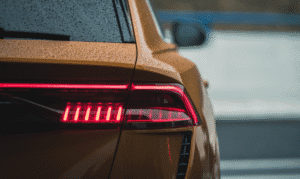Mon – Fri 8am – 10pm, Sat 9am – 5pm, Sun 9am – 10pm
Mon – Fri 8am – 10pm, Sat 9am – 5pm, Sun 9am – 10pm
Mon – Fri 8am – 10pm, Sat 9am – 5pm, Sun 9am – 10pm
Mon – Fri 8am – 10pm, Sat 9am – 5pm, Sun 9am – 10pm
Key Takeaways:
S5 Trackers offer maximum protection for high-risk vehicles.
S7 trackers provide affordable, insurance-approved recovery.
Your insurance may dictate the required tracker type.
Choosing the right tracker depends on risk, budget, and policy.

If you own a high-value or high-performance car, you’ll get to enjoy a thrilling motoring experience – one that a thief might want to take from you. That means understanding the difference between S5 and S7 vehicle trackers.
Vehicle theft is a growing concern for many of us and to combat this, car trackers have become a cornerstone of modern vehicle security.
These devices, which have certification from the UK’s leading car security authority, Thatcham Research, help recover stolen vehicles and often satisfy insurance requirements for car theft cover.
The two primary categories today are S5 and S7 trackers, which have replaced the older Cat 5 and Cat 6 terminology.
Here, the car security experts at ghostinstallations.co.uk compare S5 trackers and Category S7 trackers, helping you decide which is best for your vehicle based on its risk profile and your insurer’s demands.
Category S5 trackers are the pinnacle of Thatcham-approved vehicle tracking systems, designed for maximum security. These devices are packed with advanced features, making them ideal for high-value or high-performance vehicles like Range Rovers, Porsches and premium BMWs, which are prime targets for thieves. Key features include:
These features make S5 trackers the go-to choice for owners seeking robust protection and for insurers covering high-risk vehicles.
Category S7 trackers are GPS-based devices that focus on effective stolen vehicle recovery without the advanced driver verification of S5 systems. They are a popular choice for mid-range vehicles or owners wanting a cost-effective, insurance-compliant solution. Key features include:
While S7 trackers lack ADR functionality, meaning they cannot verify the driver’s identity, they still meet Thatcham’s stringent standards for stolen vehicle recovery. They’re considered the entry-level option for insurance-approved trackers, offering reliable protection at a lower cost.
Understanding the differences between S5 and S7 trackers is crucial for choosing the right system. Here’s a side-by-side comparison:
| Feature | S5 Tracker | S7 Tracker |
|---|---|---|
| Automatic Driver Recognition (ADR) | Yes – requires driver ID tag; alerts if absent | No – cannot verify driver identity |
| GPS Tracking | Yes – real-time location tracking | Yes – real-time location tracking |
| 24/7 Monitoring | Yes – dedicated control centre | Yes – dedicated control centre |
| Remote Immobilisation | Optional (S5 Plus) – police-authorised | No |
| Tamper Alerts | Yes – detects device interference | Limited or none |
| Tow-Away Alerts | Yes – detects unauthorised movement | Limited or none |
| Cost | Higher – due to advanced features and subscription | Lower – more affordable option |
The standout difference is the ADR feature in S5 trackers. If a thief uses a cloned key or a relay attack, which is a common method to bypass keyless entry systems, an S5 will detect the absence of the driver’s tag and alert the monitoring centre.
However, the S7 tracker doesn’t have this capability so it won’t notice if a thief drives off with the owner’s keys, though it can still track the vehicle’s location.
S5 trackers also offer features like tamper and tow-away alerts, providing an extra layer of proactive security. These benefits come at a higher cost, both for the device and ongoing monitoring subscriptions.
Insurers in the UK often require Thatcham-approved trackers for vehicles prone to theft, such as luxury SUVs, sports cars or models frequently targeted by thieves. The choice between the S5 and S7 depends on the insurer’s requirements and the vehicle’s risk profile:
It’s always a good idea to check your insurance policy or consult your insurer to confirm whether the S5 or the S7 is required. Installing either can lead to lower premiums, as it demonstrates a commitment to vehicle security, but failing to meet a mandated tracker category could invalidate your theft cover.
Choosing between the S5 or the S7 depends on your vehicle, budget and insurance requirements. Here’s some guidance:
Both the S5 and S7 offer a big boost for vehicle security, and Thatcham approval ensures high standards for recovery.
For maximum protection, consider a layered approach: even with the S7 tracker, other measures like steering locks or Faraday pouches for keyless fobs can deter thieves.
Ghost Installations can advise on complementary security solutions tailored to your needs.
Whether you opt for an insurance-approved S5 tracker or S7 tracker, a Thatcham-approved tracker is a smart investment for protecting your vehicle and meeting insurance requirements.
S5 trackers offer advanced security with driver recognition and optional immobilisation, making them ideal for high-value cars, while S7 trackers provide reliable, cost-effective recovery for a wide range of vehicles.
By understanding the differences, you can make an informed decision that balances security, cost and insurer demands.
For expert guidance and professional installation of Thatcham-approved trackers, Ghost Installations is here to help you choose and fit the perfect tracking system for your car.

Gareth Brooks is a vehicle security expert and Managing Director of Ghost Installations, specialising in advanced tracking systems and theft prevention solutions across the UK.
Some of our Frequently Asked Questions
Our head office is based in Halifax, however our engineers are based nationwide to cover all the UK.
It’s dependent on the vehicle, usually around 2 hours.
We have a dedicated aftercare team who can assist you, after verification we are able to support you to change the code.
It can be changed by you at any point and you can do this at any time and each day if you wish for maximum security
The device detects if your car has start / stop technology so you enter the code when you initially start the car and get into it and that’s it. If the car stops at traffic lights it automatically restarts as it normally would do before you had the ghost fitted.
Speak to one of our dedicated account managers to find the correct deal to support your install. We always have offers available.
When the car is being driven by others, you can enter service mode so your code is not compromised to the garage. The car stays in service mode until driven over 30 mph or if you take it out of service mode. (Please ask on the day of installation how this is done.)
The product is guaranteed for two years.
You can have it removed by us or leave it in the car as a sales feature to get more for your car with it fitted. Please note there will be an additional charge for this service.
We can remove and refit if required once your lease has ended. Please note there will be an additional charge for this service.